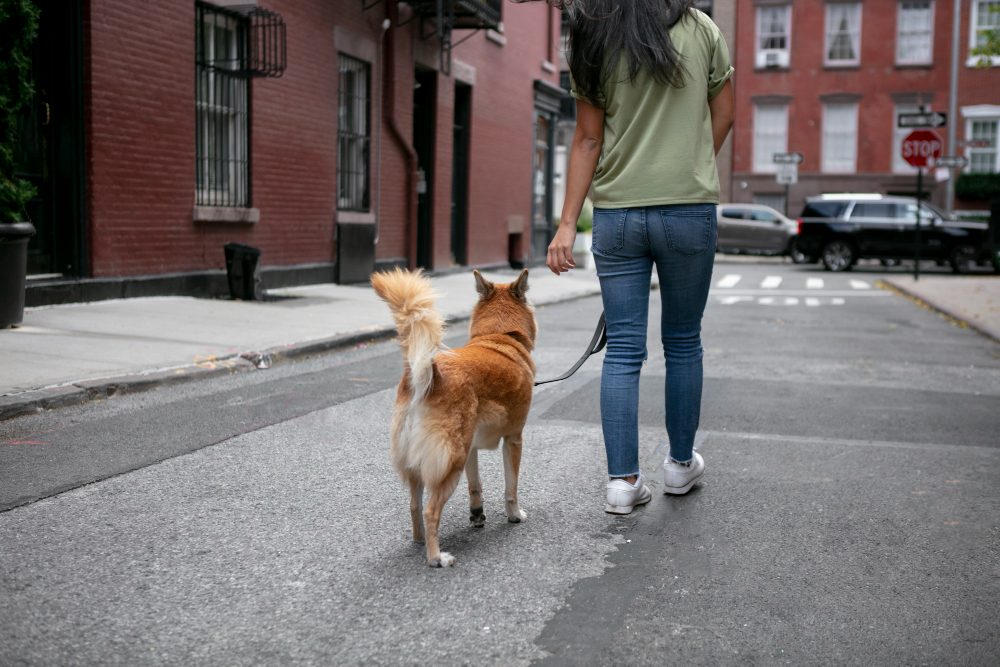Enhancing Your Senior Dog's Mobility

Enhancing Your Senior Dog's Mobility

As your dog ages, you may notice changes in their mobility. While these changes can be challenging to manage, there are several ways to help your senior dog maintain their quality of life. This blog post will explore effective strategies to support your senior dog's mobility and well-being. If you're considering in-home euthanasia in Jupiter, FL, contact Rover Veterinary Care today for compassionate and professional support.
Understanding Mobility Issues in Senior Dogs
Dogs, like humans, face various health challenges as they age. Mobility issues are common among senior dogs and can stem from several underlying causes, including:
- Arthritis: Inflammation of the joints can cause pain and stiffness, making movement difficult.
- Hip Dysplasia: A condition where the hip joint doesn't fit properly, leading to discomfort and limited mobility.
- Muscle Atrophy: Loss of muscle mass can weaken a dog's ability to move effectively.
- Obesity: Excess weight puts additional strain on joints and muscles, exacerbating mobility problems.
Understanding these issues is the first step in helping your senior dog. Regular veterinary check-ups can identify the root causes of mobility problems and guide you in effective treatment plans.
Diet and Nutrition
Proper nutrition plays a crucial role in maintaining your dog's mobility. Consider the following dietary changes to support joint health and overall well-being:
- Balanced Diet: Ensure your dog receives a balanced diet rich in essential nutrients to support their health.
- Joint Supplements: Glucosamine and chondroitin supplements can promote joint health and alleviate arthritis symptoms.
- Omega-3 Fatty Acids: Fish oil supplements contain omega-3 fatty acids, which have anti-inflammatory properties that can reduce joint pain.
- Weight Management: Maintaining a healthy weight can significantly reduce the strain on your dog's joints.
Exercise and Physical Therapy
Regular exercise is vital for keeping your senior dog mobile. However, it's essential to tailor exercise routines to their specific needs and limitations:
- Low-Impact Exercises: Activities like swimming and walking on soft surfaces can improve muscle strength without putting too much strain on the joints.
- Physical Therapy: Professional physical therapy can provide targeted exercises and treatments, such as hydrotherapy or laser therapy, to enhance mobility.
- Massage: Gentle massage can relieve muscle tension and improve circulation, promoting better movement.
Home Modifications
Making your home environment more accessible can greatly benefit your senior dog's mobility:
- Non-Slip Surfaces: Place non-slip mats or rugs on slippery floors to prevent falls.
- Ramps and Steps: Install ramps or pet steps to help your dog access furniture or climb stairs with ease.
- Comfortable Bedding: Provide orthopedic beds that offer support and reduce pressure on joints.
Pain Management
Effective pain management is crucial for improving your senior dog's quality of life. Consult your veterinarian to explore appropriate pain relief options:
- Medications: Anti-inflammatory drugs and pain relievers can help manage chronic pain.
- Alternative Therapies: Acupuncture and chiropractic care can complement traditional treatments and alleviate pain.
- Heat Therapy: Applying heat packs to sore joints can provide temporary relief from discomfort.
Regular Veterinary Care
Consistent veterinary care is essential for monitoring your senior dog's health and addressing any mobility issues promptly:
- Routine Check-Ups: Regular veterinary visits can detect early signs of mobility problems and allow for timely intervention.
- Diagnostic Tests: X-rays, blood tests, and other diagnostic tools can identify underlying conditions affecting your dog's mobility.
- Personalized Treatment Plans: Your veterinarian can develop a tailored treatment plan to address your dog's specific needs.
When to Consider In-Home Euthanasia
Sometimes, despite your best efforts, your senior dog's quality of life may continue to decline. In such cases, considering in-home euthanasia can be a compassionate decision:
- Comfort and Familiarity: Allowing your dog to pass peacefully in a familiar environment can reduce stress and anxiety.
- Professional Support: Veterinary professionals can provide guidance and support throughout the process, ensuring a humane and dignified experience.
If you're considering in-home euthanasia in Jupiter, FL, contact Rover Veterinary Care today for compassionate support and expert advice.
Conclusion
Supporting your senior dog's mobility requires a comprehensive approach that includes diet, exercise, home modifications, and regular veterinary care. By implementing these strategies, you can help your furry friend maintain a higher quality of life in their golden years.
For more information or to discuss in-home euthanasia options in Jupiter, FL, reach out to Rover Veterinary Care. We're here to provide the care and support you and your beloved pet need.
